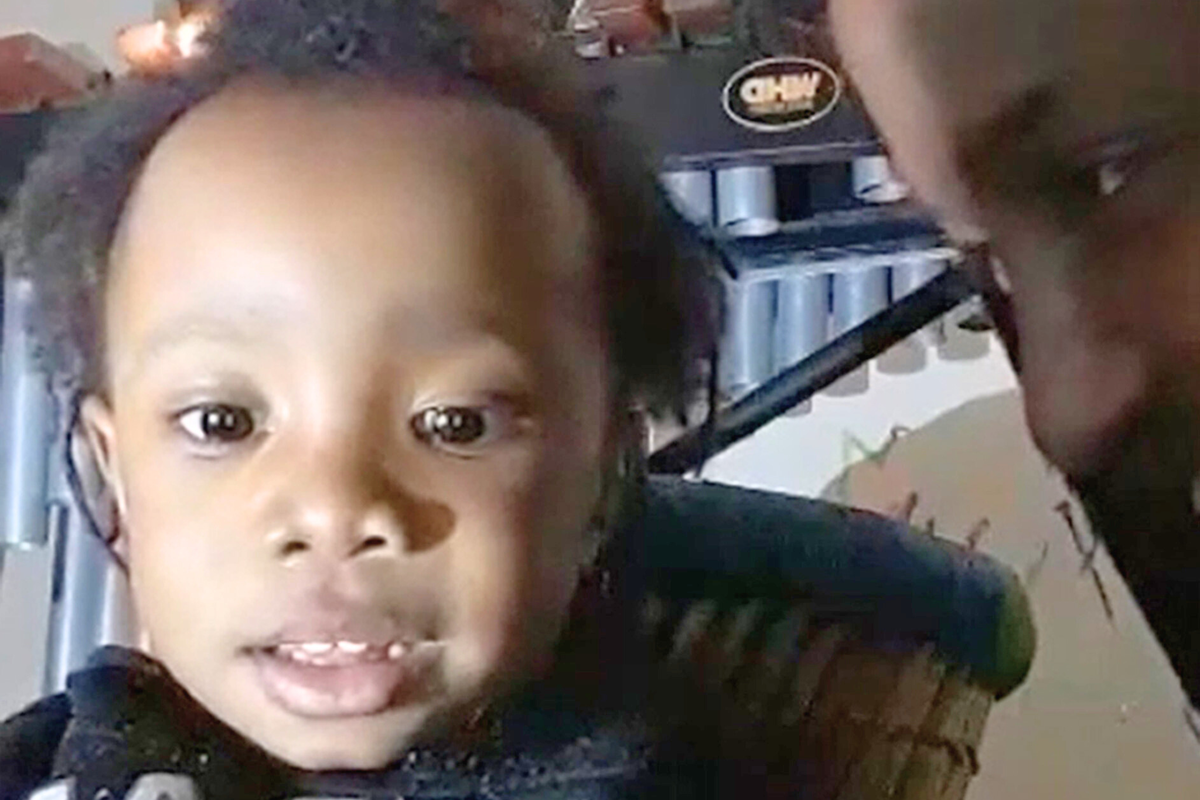A mother who starved her three-year-old boy on an extreme vegan diet and later buried his body in the garden has admitted for the first time that her beliefs caused his death.
Abiyah Yasharahyalah died in early 2020 from a respiratory illness, worsened by a “restricted” vegan diet consisting primarily of nuts, raisins and soya milk, which caused severe malnourishment, rickets, anaemia and stunted growth.
A review, published by Birmingham Safeguarding Children Partnership on Wednesday examining his contact with authorities before his death, has revealed that Abiyah’s mother believed she was “doing the right thing at the time” for her son based on her cultural beliefs.
However, she told the review that with the benefit of hindsight, she now wished she had done more research about diet and healthcare.
She said it was “hard to accept that my approach did not lead to the best outcomes for my child and that it took the court process to take me out of that bubble”.
The report noted that she spoke about being firm that she made the right choices for her children and, at the time, did not believe he needed help with any illness.
Abiyah’s parents, Tai and Naiyahmi Yasharahyalah, aged 42 and 43, were sentenced to 24-and-a-half years and 19-and-a-half years respectively for causing their son’s death and perverting the course of justice by burying his body in their back garden.
The sentencing judge said they had both “played a part in starving” their son when it would have been obvious he needed medical care.
London-born Tai, a medical genetics graduate who also used the first name Tai-Zamarai, and former shop worker Naiyahmi shunned mainstream society and left Abiyah’s body buried at their property in Handsworth, Birmingham, when they were evicted in March 2022.
A two-month trial at Coventry Crown Court last year heard the couple had “invented” a belief system featuring aspects of Igbo culture that Tai, who grew up in both Nigeria and Peckham in south-east London, adapted to form a legal system he called “slick law”.
The court heard that they lived off the generosity of others, at one point living in a shipping container and at another in a caravan in the Somerset area.
During an interview, Naiyahmi revealed that their lifestyle was a way of having a more private life. She explained she was trying to “protect [herself] from all the bad things in the world”.
The report stressed that she had shared no information which indicated the relationship with her husband was any other than “equal and caring”.
It also revealed that Abiyah “was only ever seen by a small number of professionals during his lifetime, and for a limited time only”.
According to records, he was seen by a health visitor in April 2016 shortly after his birth, and the following month for a check-up.
There was some contact in 2018 with a local authority social worker in London and four visits to a children’s centre in Birmingham, but the review said: “Records of these contacts and interactions are very limited, reinforcing that there was very little insight into (Abiyah’s) existence, health or welfare.”
Abiyah’s parents’ trial heard police visited the Clarence Road property in Handsworth three times, including in February 2018 when Abiyah was alive.
The review stated that “no details were recorded” about Abiyah, and he was “almost invisible on review of records”.
Elsewhere, the report noted there was “no exploration or curiosity” from the health visiting service, run by Birmingham Community Health Care NHS Foundation Trust, about Abiyah’s mother’s desire for a home birth with no medical intervention.
In March 2020, health visitor records noted at a safeguarding meeting that Abiyah had not been seen by them since his six-week assessment, with appointments at the one and two-year marks since his birth not attended.
He had also not received any routine immunisations. While a follow-up inquiry was planned, there was no record of why it never happened, although the review stated that the coronavirus lockdown, which began that year likely contributed.
The various authorities coming into contact with the child’s family showed a “general lack of knowledge or assessment of the parents’ belief systems”, leading to an “insufficient understanding about the impact on his care, the review said.
It added that his parents’ behaviour “often distracted or diverted professional attention” away from his safety and welfare.
The review stated: “Parental resistance of advice, support or authority ultimately resulted in (Abiyah) becoming invisible and lost from professional view.”
Partnership co-chairs James Thomas and Sue Harrison said: “Protecting children out of professional sight is a real challenge, given the limits of statutory powers to ensure all children are regularly seen. Our partnership has made this one of our top strategic priorities to ensure that we do everything we possibly can to identify risk to those children who are out of sight.”
Abiyah’s parents were arrested on December 9 2022, leading to the discovery of their son’s body five days later.
Tai and Naiyahmi Yasharahyalah were found guilty of perverting the course of justice, causing or allowing the death of a child, and child neglect.

